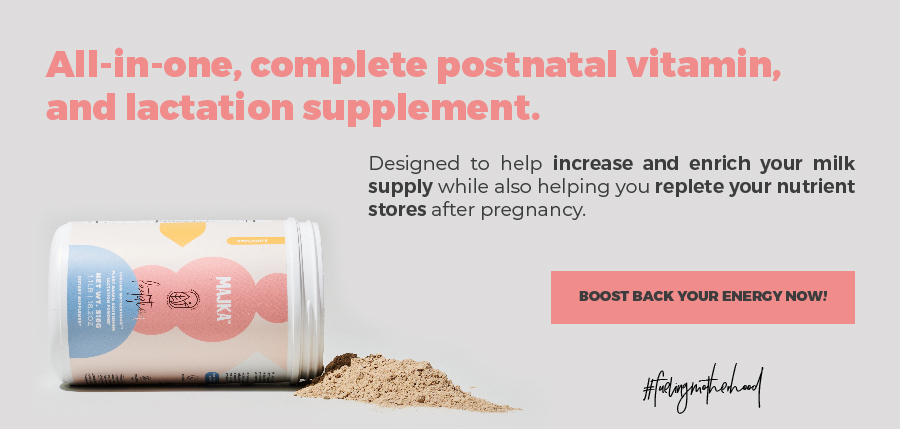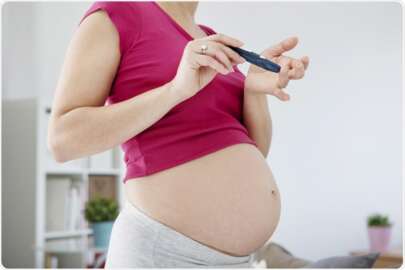
Your body image is not what your actual body is, but a subjective judgment that your mind has about how your body looks like.
This judgment has to do with your life history of what you heard about your body or other bodies, if they were critice or not; this coming from your family and from the society.
Having a baby involves a whole lot of emotions, and a negative body image of yourself can keep your emotions and energy low.
In this article we will talk about what body image after birth is normal and healthy rather than what most of the media has shown us; we will also share some tools that can help you to have a more positive body image of yourself after delivery.
Remember that you and your body had given life to another human being, what’s more amazing than that?!
What’s my body going to look like after having a baby?
First of all, it is important to acknowledge that your body carried a baby for about 9 months, so the expectation of your body looking like it did before right away it’s just wrong; even as the media tends to show unusual body changes right after birth, this isn’t necessarily true or healthy.
In the following, we share with you some of the changes that your body may experience after birth:
- As your belly grows the most during pregnancy it’s normal to have stretch marks or excess skin after birth, it may take weeks for this to go away and scars of it could remain.
- If breastfeeding, your breasts may be swollen as well, and as time goes by they may look sag because of the stretched skin
- Your feet and extremities may be swollen for a while, as while pregnant your body produces more fluids to accommodate your baby, it takes time for these extra fluids to go away.
- Acne and/or skin changes may be present for the first month after birth.
- Hemorrhoids and/or varicose veins could show up after birth as a result of dilated blood vessels that develop during pregnancy, which may take about three months to vanish.
- You may experience what seems like hair loss but it’s actually extra hair that you gained while pregnant.
Will my body look different after a C-section?
How your body looks after a C-section isn’t very different from what it may look after a vaginal birth except for your incision (recovery care is different, but it isn’t the topic of this article).
Keep in mind that after your C-section (or a vaginal birth) it’s normal to look as if you were still pregnant, although you will lose about 13 pounds during birth, it will take longer for your body to get rid of the rest of the fluids that cause the extra weight.
Body dysmorphia after pregnancy
If you are spending a lot of your time worrying about flaws in your appearance (flaws that are unnoticeable to the people around you); you may be experiencing body dysmorphia, which is a mental health condition.
As with any mental health condition, it’s important to get professional help, which is nothing to be ashamed of, just like any other health condition in which we all need to get some treatment. Not treating body dysmorphia could lead to worsen symptoms such as anxiety, depression or even suicide thoughts; talk to a mental health provider if you believe you are experiencing it.
How to deal with postpartum body image
Here we share some ideas that could help you have a more positive image of your body in order to enjoy and appreciate all that your body is doing while you are becoming a mom:
- Do not pressure yourself to love your body, just try to avoid focusing on everything that you don’t like about it.
- Switch your focus: as though your body changes may not look great to you, they do have a great meaning; your body gave life to your baby and is now feeding him/her! All of this wouldn’t be happening if your body didn’t experience these changes (and some of them will disappear in a little while).
- Take care of yourself: although your time may be limited now that you are taking care of a baby, this isn’t a one person’s job, talk to your partner in order to share some baby chores so you can get some time to eat, rest and exercise if you wish to do so.
- Be patient: it took a while for your body to build a placenta and grow a baby, it’s normal that it takes a while to recover from it.
- Accepting your body changes doesn’t mean that you have to be uncomfortable, if you are in any kind of pain, let your doctor know so it can be treated.
- Move forward, your body and life aren’t the same as they were before having your baby but that isn’t a bad thing, now you get to experience a whole new different things and adventures.
- Avoid things that worsen your feelings about your body: if social media, friends, thoughts, mirrors or any other things are making you feel bad, try to be involved in different activities and company that make you feel good.
In Breastfeeding 101 we love to have you here and hope this information has been helpful for you to learn more about body image after birth, we invite you to follow us to get more content on this topics.
Here are some of the sources that made this article possible:
- Body Changes with Baby: a Qualitative Insight into Body Image After Birth I Portland State University
- Body dysmorphic disorder (BDD) I NHS
Body Image Attitudes During Pregnancy and the Postpartum Period I ScienceDirect - C-section delivery: What to Expect I MayoClinic
- Is That Mom in the Mirror Really Me? I The New York Times
Postpartum Body Image and Self-Esteem I ResearchGate - Postpartum Body Changes You Should Know About I The New York Times
Predictors of Body Image During the First Year Postpartum: A Prospective Study I ResearchGate
Social media use and postpartum body image dissatisfaction: The role of appearance-related social comparisons and thin-ideal internalization I ScienceDirect - The impact of body image on mental and physical health I UK Parlament
- Women’s experiences of their pregnancy and postpartum body image: a systematic review and meta-synthesis I BMC
8 Ways to Overcome Negative Body Image After Baby I PennMedicine
Annie Rueb






